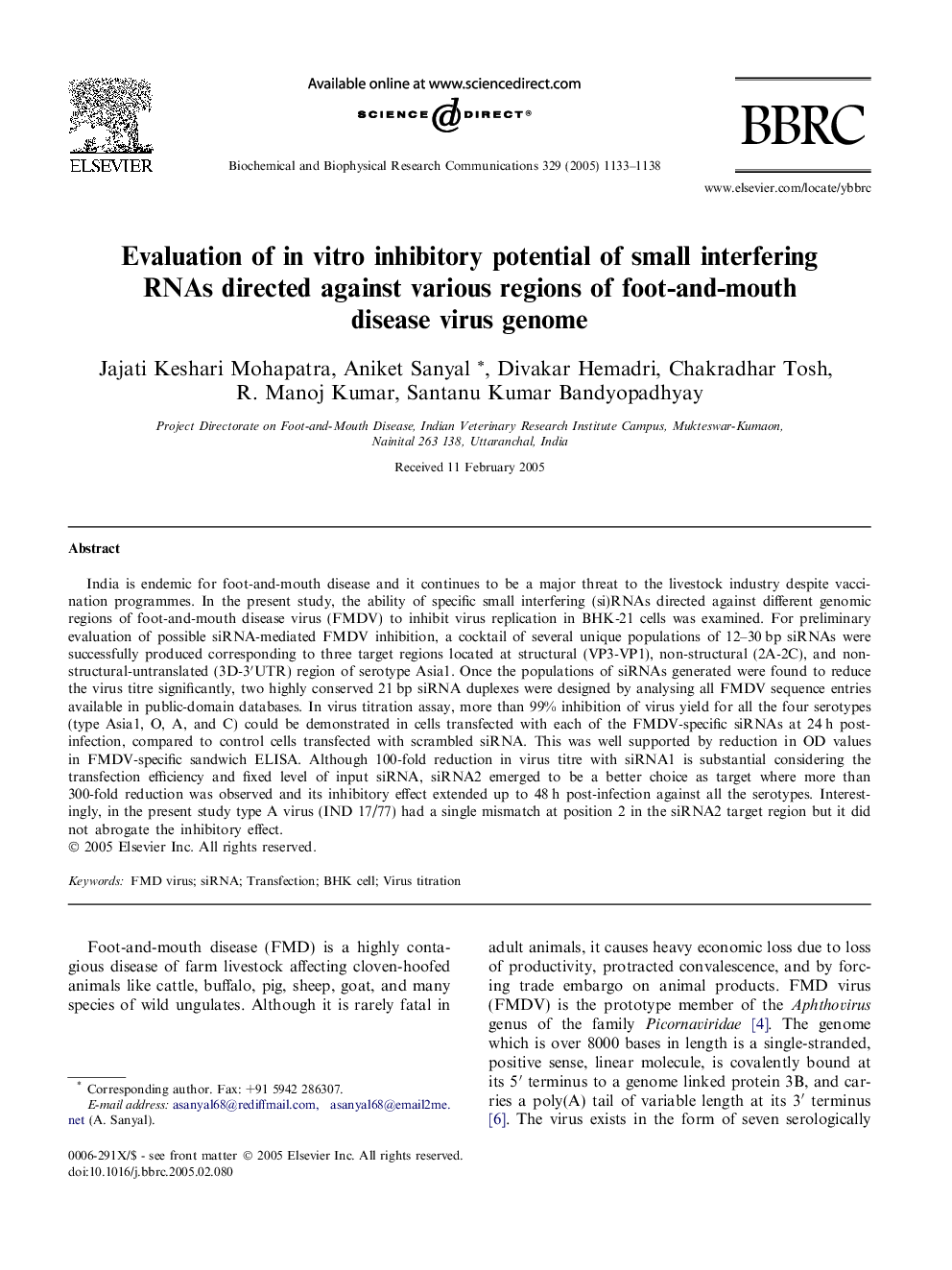| Article ID | Journal | Published Year | Pages | File Type |
|---|---|---|---|---|
| 10771131 | Biochemical and Biophysical Research Communications | 2005 | 6 Pages |
Abstract
India is endemic for foot-and-mouth disease and it continues to be a major threat to the livestock industry despite vaccination programmes. In the present study, the ability of specific small interfering (si)RNAs directed against different genomic regions of foot-and-mouth disease virus (FMDV) to inhibit virus replication in BHK-21 cells was examined. For preliminary evaluation of possible siRNA-mediated FMDV inhibition, a cocktail of several unique populations of 12-30Â bp siRNAs were successfully produced corresponding to three target regions located at structural (VP3-VP1), non-structural (2A-2C), and non-structural-untranslated (3D-3â²UTR) region of serotype Asia1. Once the populations of siRNAs generated were found to reduce the virus titre significantly, two highly conserved 21Â bp siRNA duplexes were designed by analysing all FMDV sequence entries available in public-domain databases. In virus titration assay, more than 99% inhibition of virus yield for all the four serotypes (type Asia1, O, A, and C) could be demonstrated in cells transfected with each of the FMDV-specific siRNAs at 24Â h post-infection, compared to control cells transfected with scrambled siRNA. This was well supported by reduction in OD values in FMDV-specific sandwich ELISA. Although 100-fold reduction in virus titre with siRNA1 is substantial considering the transfection efficiency and fixed level of input siRNA, siRNA2 emerged to be a better choice as target where more than 300-fold reduction was observed and its inhibitory effect extended up to 48Â h post-infection against all the serotypes. Interestingly, in the present study type A virus (IND 17/77) had a single mismatch at position 2 in the siRNA2 target region but it did not abrogate the inhibitory effect.
Related Topics
Life Sciences
Biochemistry, Genetics and Molecular Biology
Biochemistry
Authors
Jajati Keshari Mohapatra, Aniket Sanyal, Divakar Hemadri, Chakradhar Tosh, R. Manoj Kumar, Santanu Kumar Bandyopadhyay,
